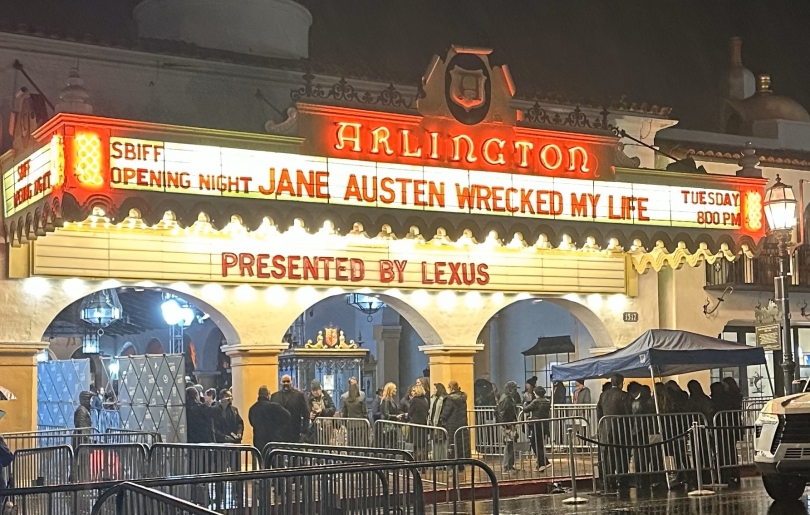
40 Years of SBIFF 2025 OPENING NIGHT: on a rainy night, the Santa Barbara International Film Festival (SBIFF) opened its 40th edition with the U.S. premiere of “Jane Austen Wrecked My Life,”, offering a much-needed respite after a challenging month marked by devastating wildfires in Los Angeles.
Starting on February 4, the festival features 33 world premieres from 60 countries, with over half directed by women. Notable stars expected to attend this milestone celebration include Angelina Jolie, Ralph Fiennes, and Timothée Chalamet.
Interviews
At the Arlington Theatre opening, Santa Barbara Mayor Randy Rowse reflected on the festival's 40-year journey, followed by SBIFF executive director Roger Durling, who expressed his passion for films and his vision of the role of Film Festivals. He emphasized the healing powers of cinema, how it fosters belonging, and builds communities.
Mr Durling also announced SBIFF's commitment to year-round programming, embedding art and creativity in Santa Barbara throughout the year.
Reiterating the festival's dedication to the community, SBIFF has pledged support for LA fire relief by partnering with Direct Relief to raise funds, featuring a $100,000 matching grant and limited-edition anniversary T-shirts.
Kicking off the festival at the Arlington Theatre was the U.S. premiere of “Jane Austen Wrecked My Life,” French director Laura Piani’s first feature film.
This finely crafted and elegantly shot Franco-British romantic comedy explores the back and forth between a character's desire and her reality.
It follows an aspiring writer, portrayed by captivating actress Camille Rutherford, on a journey to find her creative voice, yearning for love while also dealing with grief.
The film is a witty and hopeful fairytale about embracing vulnerability and creating human connections in an increasingly disconnected world.
It reflects on the role of literature in our lives, Jane Austen's timeless impact, and on the importance of poetry found through life’s imperfection. Ultimately, it is a story about friendship, love, and forging one’s true path.
Overall, this heartwarming opening night of the Santa Barbara Film Festival remained true to its mission, embodying the promise of inclusivity, togetherness and the joy that cinema provides.
Helene Frain & Guy Kennedy